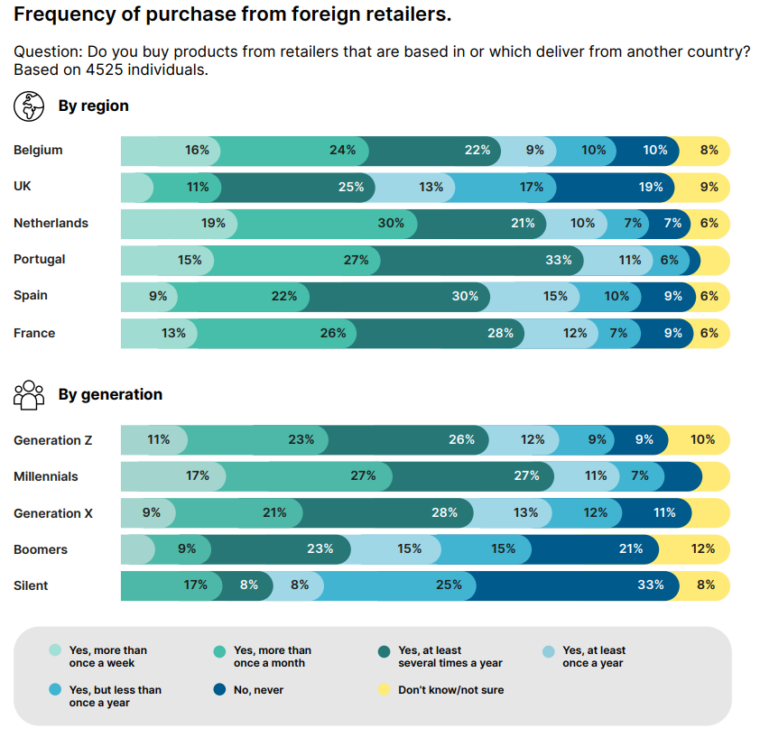‘Price increases drive cross-border shopping’
Consumers’ pursuit of more affordable prices is fueling cross-border shopping behavior, according to a consumer study conducted by Worldline in six European countries.
The study reveals that about half of consumers regularly shop outside of their domestic market. “The primary drivers behind this behavior are the better value and product availability”, concludes Europe’s largest payment services provider.
Changing landscapes
Worldline’s research report sheds light on the changing landscape of online shopping in the region. The rising cost of living emerges as the most pressing concern for consumers. The study highlights that consumers are adjusting their shopping habits and adopting cost-saving measures, with prices, coupons, and discounts playing crucial roles in their decision-making process.
Price sensitivity is at an all-time high, according to Björn Hoffmeyer, Head of Regional Businesses at Worldline: “Consumers are more price-sensitive than ever before.”
‘Consumers are more price-sensitive than ever before.’
This holds true for all six countries included in the study: Belgium, France, Portugal, Spain, the Netherlands, and the UK. The increased price sensitivity is impacting online spending, as also observed by Worldline.
Cross-border shopping
In their quest for good deals, European online shoppers are increasingly looking to foreign webshops, the payment service provider remarks. Approximately half of consumers regularly shop outside their domestic markets, with notable percentages in Portugal (75%) and the Netherlands (70%). Younger consumers, particularly Millennials and Gen Z shoppers, are at the forefront of this trend.

As consumer habits evolve, so do their payment methods. With the rise in cross-border e-commerce, customers are seeking international and flexible payment options. Bank cards remain the preferred payment method, but digital wallets are challenging their dominance.
Digital wallets are challenging bank cards.
Alternative payment methods, such as buy now pay later, are also gaining popularity.
Personalization and emerging technologies
The research highlights the growing preference for personalization among online shoppers. Subscription services are increasingly sought after for convenience, value, and personalized product recommendations. The study also explores emerging technologies that shape the future of e-commerce, including augmented reality, virtual shopping assistants, metaverse shopping, and voice shopping. These technologies elicit mixed levels of anticipation among consumers.
